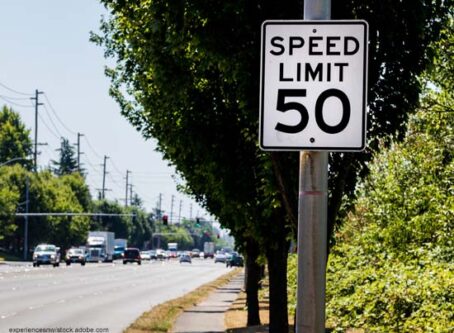Pennsylvania panel offers solutions to transportation funding
A special task force at the Pennsylvania statehouse has revealed a list of recommendations and suggestions to address transportation funding needs in the coming year.
The House transportation infrastructure task force is headed by Rep. Martina White, R-Philadelphia. The group was formed to analyze the current state of transportation, modernization needs, funding challenges and other challenges of Pennsylvania’s transportation system
The group concluded in a report that shortfalls in funding for transportation are widespread. White said in prepared remarks that the report cited $4.5 billion diverted to the Pennsylvania State Police from the fund since 2012-13.
“As a result of the diversions, only 27% of PennDOT’s projects in 2017 were completed,” the task force reported. “By ending these diversions permanently, transportation priorities could be completed, and new projects could begin.”
Additionally, the Pennsylvania Turnpike has amassed $13 billion in debt obligations that are blamed for the Turnpike Commission’s decision to raise tolls each year for more than a decade.
To further complicate matters, the task force reports the fuel tax increase passed in 2013 is not meeting revenue projections. The panel attributed the shortfall to an increase in more fuel-efficient vehicles, such as hybrids and electric models. Additionally, they say the price of fuel has remained relatively low while the cost of infrastructure projects has increased.
White’s panel pointed out that some solutions to fund transportation are already law and will take effect in the coming years. The group has offered recommendations and suggestions to further eat into the budget gap.
Task force recommendations
Multiple bills would implement recommendations included in the task force report. Among them is an effort to quicken the transfer of state police funding to the General Fund.
For years, money from the state’s motor license fund was transferred for State Police operations. The amount reached three-quarters of a billion dollars by the 2016 budget year, according to state figures.
As a result, money that was intended for road and bridge work was instead being used to cover trooper expenses.
A 2016 Pennsylvania law applied the brakes on the transfers. Instead, a process was implemented to gradually reduce the amount of money routed from roads to the state police.
Funding from the motor license fund to troopers was capped at $800 million with a schedule to decrease that amount to $500 million over the next decade. There remains eight years left in the current plan.
Legislation in both statehouse chambers would expedite the timeframe for reducing the diversions by doubling the amount to transfer to get to the threshold amount by 2023, instead of 2027. The state’s general fund would be tapped to cover the difference.
Another bill in the House package would permit the state police to keep revenue from traffic tickets. Currently, ticket revenue is routed to the general fund.
A separate effort would authorize counties and municipalities to consider local transportation solutions through voter referendum. Options available for local revenue would include sales tax, earned income tax or local realty transfer tax.
Task force suggestions
Ideas presented to the task force that fell short of adoption as recommendations include advocating to Congress for control over Pennsylvania’s ability to toll highways and interstates. Additional federal funds are also needed to help subsidize the state’s transportation system.
A vehicle mileage tax is another alternative the task force said warrants further conversation.
More Land Line coverage of news from Pennsylvania is available.









